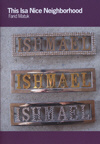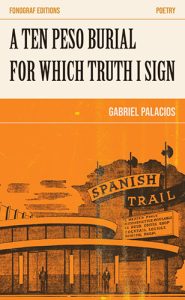This Isa Nice Neighborhood
Farid Matuk's long book of poems from Letter Machine Editions is memorable and unique. Many of the poems deal with Matuk's status as an immigrant from Peru, and the life that accompanies it. But it is not done with any agenda. It's a beautiful, oddly paced look at this world which non-immigrants may not understand. One clear look at this is in a poem aptly titled “Immigrants”:
Farid Matuk's long book of poems from Letter Machine Editions is memorable and unique. Many of the poems deal with Matuk's status as an immigrant from Peru, and the life that accompanies it. But it is not done with any agenda. It's a beautiful, oddly paced look at this world which non-immigrants may not understand. One clear look at this is in a poem aptly titled “Immigrants”:
They were bound to arrive
though walking through the vast newness
of grass fields and dirt fields far from paths
consumed them in a way so unlike
their imagined risk,
that their being in this new country seems
sudden, like something won.
And later, a beautiful line which cannot be overlooked:
Across the cement floor
they sleep their new sleep each in a gesture
which lifts the tender side
of their left wrists onto the dry folds of their lips
These gems are lodged in nearly every poem in the collection, though some of these poems are so lengthy that the title of “short story” seems applicable. And these poems do have the movement of a story in many cases. But the strange wording and phrasing, and of course the line breaks, solidifies these pieces as poems.
Matuk often uses nothing but well-done imagery to convey the point of his poems, and each poem seems to have a purpose, a message. In another poem that handles immigrant issues in a subtle way, called “Maybe Go to the Sea,” the opening imagery in the poem sets up a lonely, homesick stare:
It is an unremarkable time, day by the sea
but for the novelty of his standing
feet from the fenders and the hood.
These are things that shine in the sun by the sea.
And the lone tick, tick of his engine radiating upon the gravel of
the turnabout.
There is nothing else, nothing but his hands in his pockets.
This is how Matuk conducts the majority of the book. The imagery is the voice, often, and it speaks for itself.
The last section in the book serves as a final punch to the gut, describing first a love-lost conversation about moving all over North America, then what appear to be tragic news stories in a stone-faced, cold manner. Each poem in this section is personal, real, and honest. This Isa Nice Neighborhood is the long story of the immigrant life, each section a different look at the good and bad qualities conflicting between faraway places and home turf.





